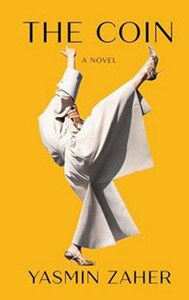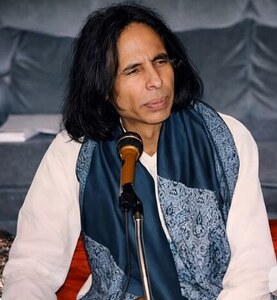Reviewed by Asif Farrukhi
Many years ago, when a novel called Snow gained international recognition and fame, the celebrated Canadian novelist Margaret Atwood was among those who greeted it with enthusiasm: “Snow is the latest entry,” she wrote, “in Pamuk’s long-time project: narrating his country into being.” The latest addition to this project is Pamuk’s Silent House. It is not a new novel, though, just translated into English for the first time. Yet it will not disappoint his ardent fans, such as myself. Following in the wake of the magnificent and heart-wrenching The Museum of Innocence, Silent House is actually Pamuk’s second novel. So rather than following the progression of this Nobel prize winning Turkish novelist in his development as a writer and an extra-ordinary chronicler of our times, we take a step back and pick up a piece missed out from the sequence and see another episode unfold.
As the publication of this novel in English follows Pamuk’s later and better-known novels, it is inevitable that it will be judged against them. Silent House does not have the historical complexity of the East-West encounter that one finds in The White Castle or the artistic virtuosity of My Name is Red or even the single-minded devotion (or obsession) of The Museum of Innocence which keeps on heaping grief upon grief of disappointed love. It does have some elements common with Snow and in some ways prefigures it as individual characters take on larger-than-life dimensions and play out the destiny of a generation and a nation. With great artistic maturity, Pamuk focuses his attention on individual lives and their concerns, without indulging in political allegorisation or heavy symbolism to make them more “representative” of what is happening in the country and it is the individual characters who will linger on in the minds of the readers rather than any diagnostic prescription for the country which was once regarded, no matter how inadequately, as “the sick man of Europe”.
Initially, Silent House seems to steer clear of larger and heavier themes found in the later Pamuk novels and perhaps achieves its dramatic impact because of this very reason. It is only then that one realises the great ease and mastery with which the novelist has managed to create the desired results. The novel opens with a narrator announcing that dinner is served and that Madam should, please, come to the table. It promises to be a very simple scene of prefect ordinariness. Such simplicity can be deceptive and somewhere in the course of the chapter the reader realises that Recep, the narrator of this chapter but not of all the subsequent ones, is a dwarf working as an attendant to the aging and demanding grandmother who is picky about her food and not-so-patiently waiting for her grandchildren’s annual visit to the seaside town where she lives, some miles away from Istanbul. Recep serves dinner and goes out for the evening, walking instead of going to the movies as he had said. At a coffee house he gets to hear of a dwarves’ house thought to have been built by one of the Ottoman rulers as punks mock him.
Fatma, the grandmother, picks up the narrative in the next chapter, dwelling on her sickness, days of her youth in Istanbul and her married life. A tyrannical figure, she seems to dominate Recep on whom she is dependant for the running of the household and the news of the world. She reminds me of the bedridden aunt Leonie and her servant Francoise who would bring her all the news from the village, especially who has gone “the Guermantes way” in Proust’s marvellous and evocative Swann’s Way. However, the relationship turns upon itself as the novel proceeds and we figure out that Recep is the illegitimate son of Fatma’s husband, the exiled doctor Selahattin, and his disability as well as that of his lame brother the result of the offended matriarch’s violent outburst. Recep’s young nephew Hasan is the next in the line of shifting narrators. He belongs to a world very different from the big, silent house. His group of Young Nationalists from Cennethisar have divided part of the beach with their adversaries, the Tuzla Communists, and collect money by forcing people to buy lottery tickets in ways similar to those employed by gangs in Karachi. Drifter, a school dropout and easily pushed into violence, the young Hasan is a frightening character.
The visiting grandchildren, Faruk, Metin and the beautiful Nilgun bring their own concerns and increase the tensions in an otherwise dull and placid beach town. As Faruk delves into local archives, we get a sense of Turkey’s past, which has to be deciphered as if from a foreign language. Metin is fond of driving around with friends and almost wills himself into being in love with a young woman and Nilgun spends time lazing around the beach. But even her simple act of buying a particular newspaper, known for its strong leftist orientation, is enough to brand her in the eyes of Hasan as he takes up watching and spying on her, ultimately leading to the tragic and moving Dostoveskyan conclusion.
With this cast of characters, Pamuk builds up his high drama. With a sure and steady hand, he introduces larger questions which they are confronted with and which are sure to strike readers. Exiled away from Istanbul, Selahattin gives up his medical practice and lives by selling his wife’s jewels as he devotes himself to the great secular task of compiling a Turkish-language encyclopaedia: “When I have finished my forty-eight-volume encyclopaedia of all the basic principles and ideas, everything that must be said in the East will have been said once and for all: I’ll fill that unbelievable gulf in thought in one full swoop, they’ll all be astonished, the newsboys on Galata Bridge will sell my encyclopaedia, Bank’s Avenue will be turned upside down, they’ll go after one another in Serkeci, some readers will commit suicide, and, above all, the people will understand me, the nation will understand! And that’s when I’ll return to Istanbul, in the middle of that great awakening, I’ll come back!” His grandson Faruk is given to musing on history: “There must be more to history, I thought, than just copying things down and linking a string of events together to make story. Maybe it was just like this: looking for the causes of a series of events, we look to other events to compare them with, and those events in turn must be explained by comparison with other events still, and on and on until we find that our entire lives wouldn’t suffice to get to the bottom of so many facts.” His fascination with history reminds me of Zakir in Intizar Husain’s Basti, but Faruk ends by assimilating too many facts which he cannot use.
But the great awakening Salahattin hopes for evades him. He comes to a horrifying realisation: “No, East and West aren’t separated by clothing, machines, houses, furniture, prophets, and governments. All of these are mere consequences; what separates us from them is that simple little truth: they have discovered the bottomless pit of Nothingness, whereas we remain unaware of this terrible truth.” His great life work remains incomplete and his wife later burns all his manuscripts because of his secular beliefs.
Meanwhile Fatma’s secret of her guilty past remains undiscovered by her children who have their own dreams. Metin would like to pull down the old, silent house and build a block of apartments and everybody, including the grandmother, knows that this is how ultimately it will be. We find her in the end, pleased at holding a book in her end and happy that once it is finished, she can go back to the beginning, without any inkling of the tragic fate that has befallen Nilgun. This is a beautiful image to end with as she too can go back and “figure out what you couldn’t understand before, in order to understand life,” the life which is not elsewhere but right here too. Pamuk’s new novel is more meaningful and relevant for us in Pakistan than an armful of books.
The reviewer is a writer and critic
Silent House
(Novel)
By Orhan Pamuk
Faber and Faber, London
ISBN 9780670085590
334pp. Rs1,295


































